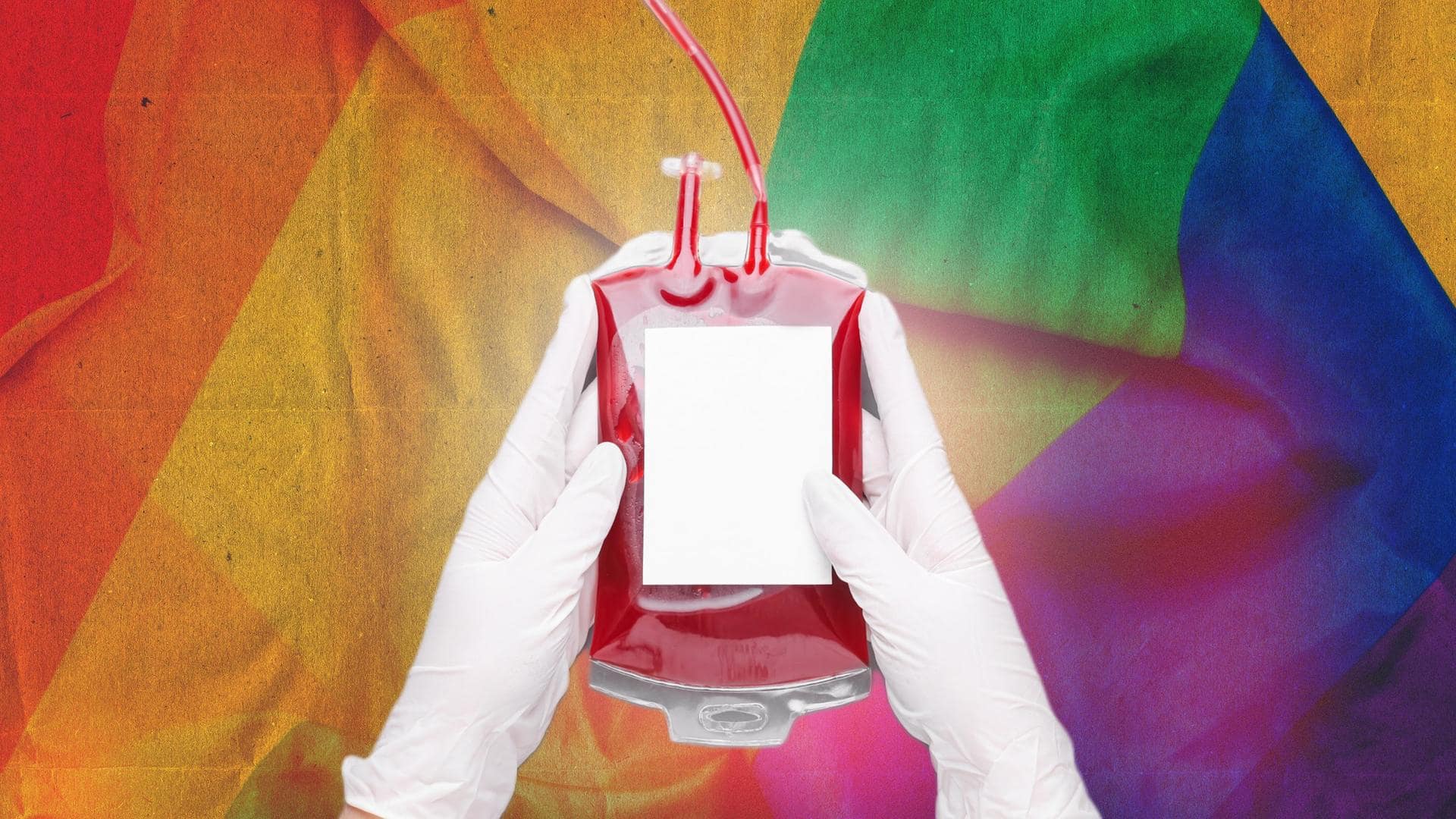
Blood donation rules for LGBTQ+ across the globe
What's the story
Blood donation is a selfless act that can make a meaningful difference in the lives of others. But this doesn't hold true for homosexuals, transgenders, and sex workers in India. They are still bereft of the right of donating blood because of a set of guidelines issued in 2017. Here, we have explored the global landscape of blood donation bans on such individuals.
Context
Here's what our expert says
Blood donation & transfusion is the process of drawing blood from one individual(donor) and injecting the blood or its components into another individual(recipient). While there is no risk of infection to the donor, the recipient is at risk of developing blood-borne illnesses like malaria, syphilis, and viruses like HIV, Hepatitis B, and C. Hence, there are guidelines worldwide to screen blood donors.
Why it matters
Here's why this is an important issue
The Union Ministry of Health and Family Welfare recently told the Supreme Court that there is substantial evidence to demonstrate that transgenders, gay men, and female sex workers are at risk for HIV, Hepatitis B, and Hepatitis C; hence, they must be barred from donating blood. This came in response to a PIL filed by a member of the transgender community, Thangjam Santa Singh.
Australia
Australia
In Australia, the blood donation policy for gay and bisexual men was revised in 2020. Men who have sex with men (MSM) are now able to donate blood but must have been abstinent for at least three months prior to donation. The deferral period was reduced from one year to three months. The new three-month deferral period went into effect on January 31, 2021.
Russia
Russia
The blood donation policy for such individuals is very strict in Russia. MSMs are permanently deferred from donating blood, regardless of their sexual behavior, the use of protection, or their HIV status. Transgender individuals are not explicitly addressed in the policy, but the deferral applies to anyone who has had intercourse with a person of the same gender, regardless of their gender identity.
Canada
Canada
In Canada, the blood donation policy for MSMs requires a three-month deferral period since their last sexual contact with another man, which is the same policy applied to other individuals who engage in higher-risk sexual behaviors. The policy is not based solely on sexual orientation, but on the risk of HIV transmission associated with specific sexual behaviors.
New Zealand
New Zealand
In New Zealand, MSMs were previously deferred from donating blood for a period of one year. However, as of December 14, 2020, the deferral period for MSM has been reduced to three months. This policy change was based on a recommendation from the New Zealand Blood Service, which conducted a review of the policy in consultation with stakeholders including LGBTQ+ advocacy groups.
USA
The United States
Owing to blood scarcity caused by the COVID-19 pandemic in the United States, the Food and Drug Administration (FDA) shortened the deferral period from 12 months to three months in April 2020. The FDA recommended abolishing the MSM deferral in January 2023 and instead prohibiting persons who had engaged in sodomy outside of a monogamous relationship within the last three months.